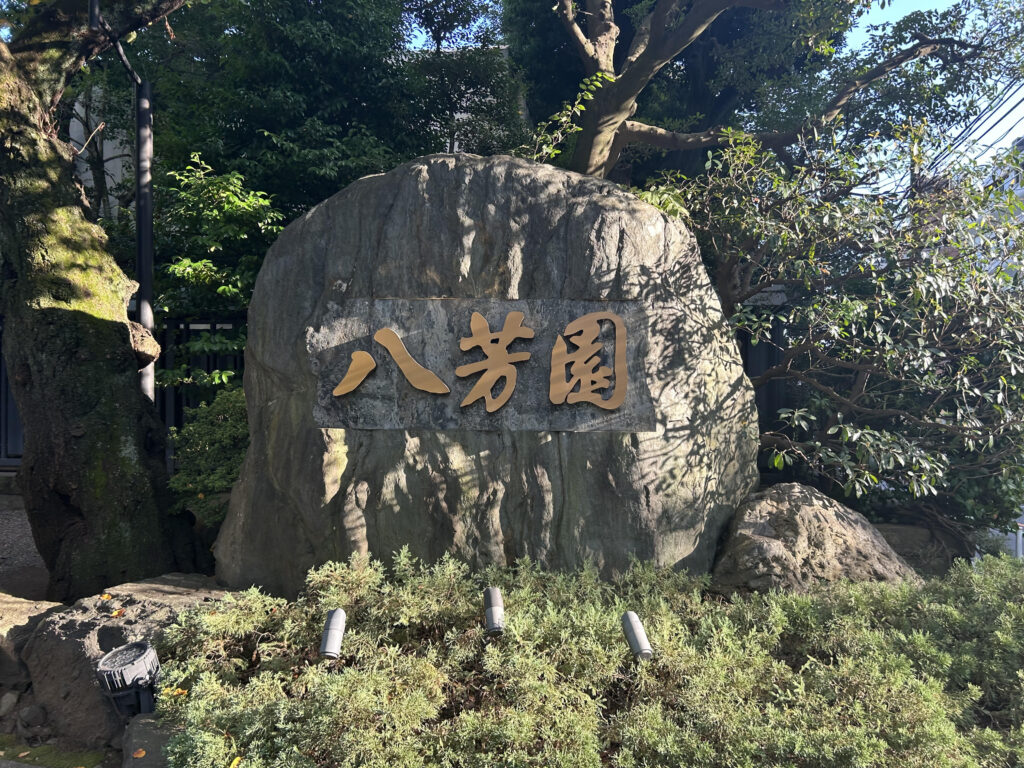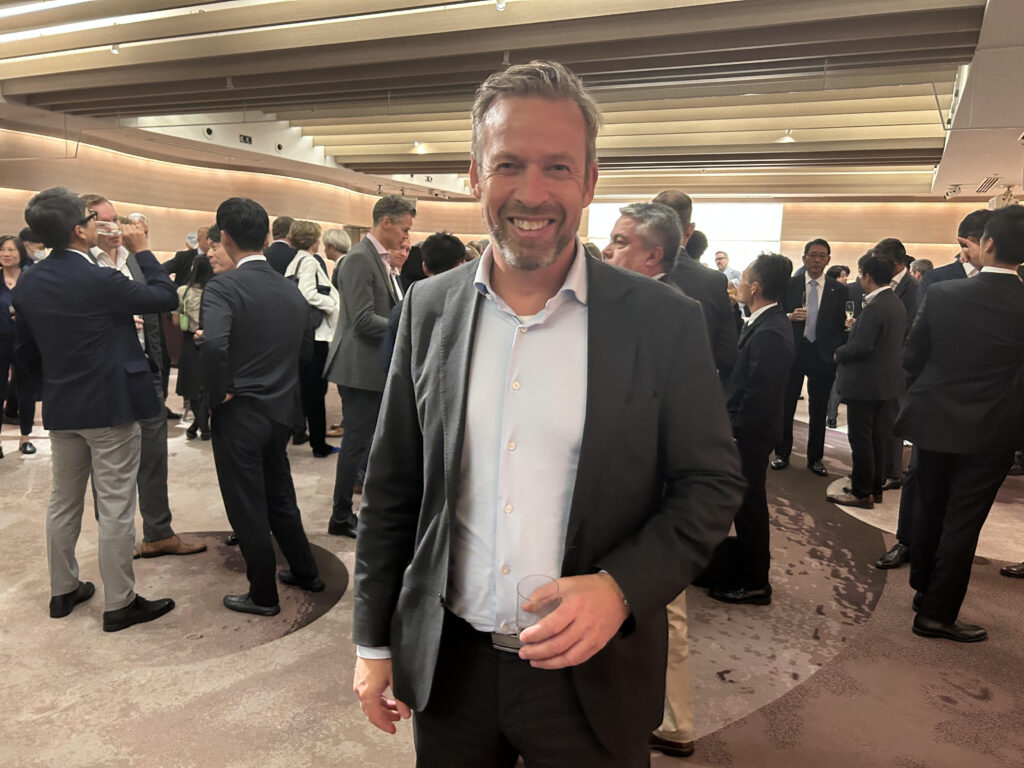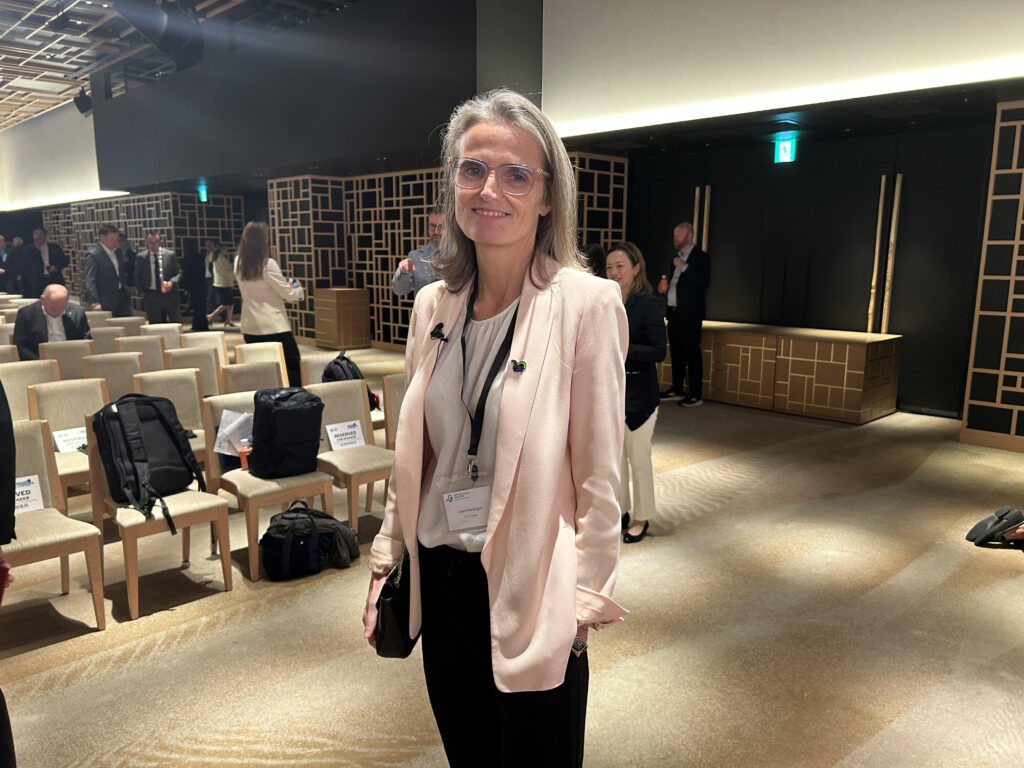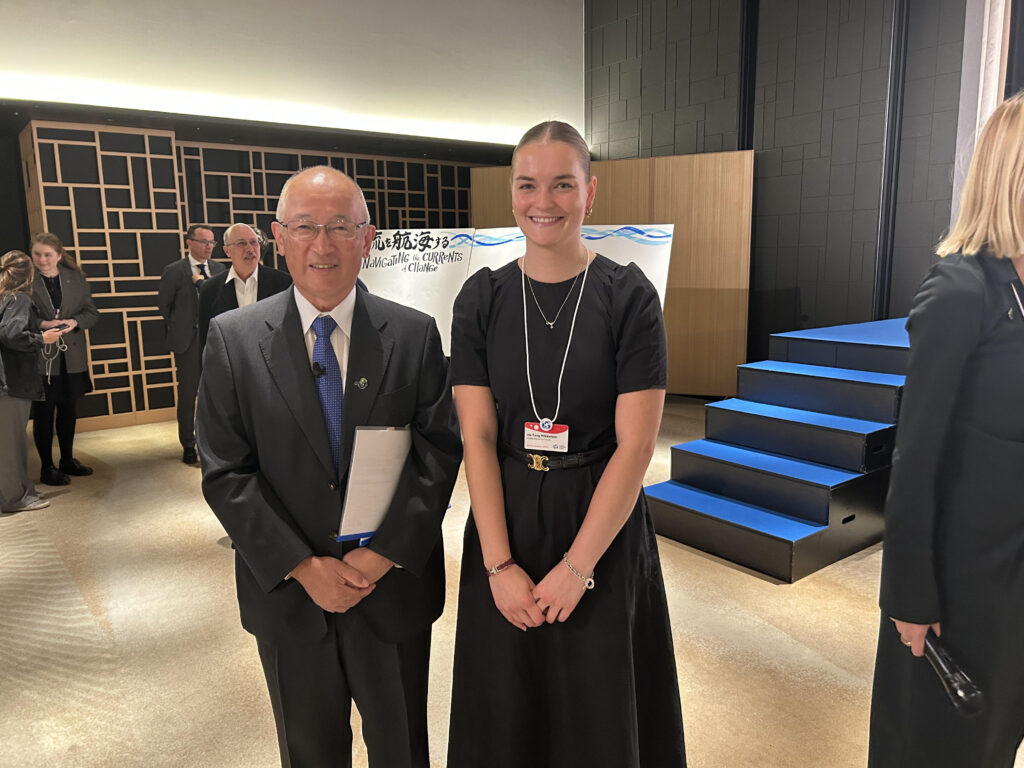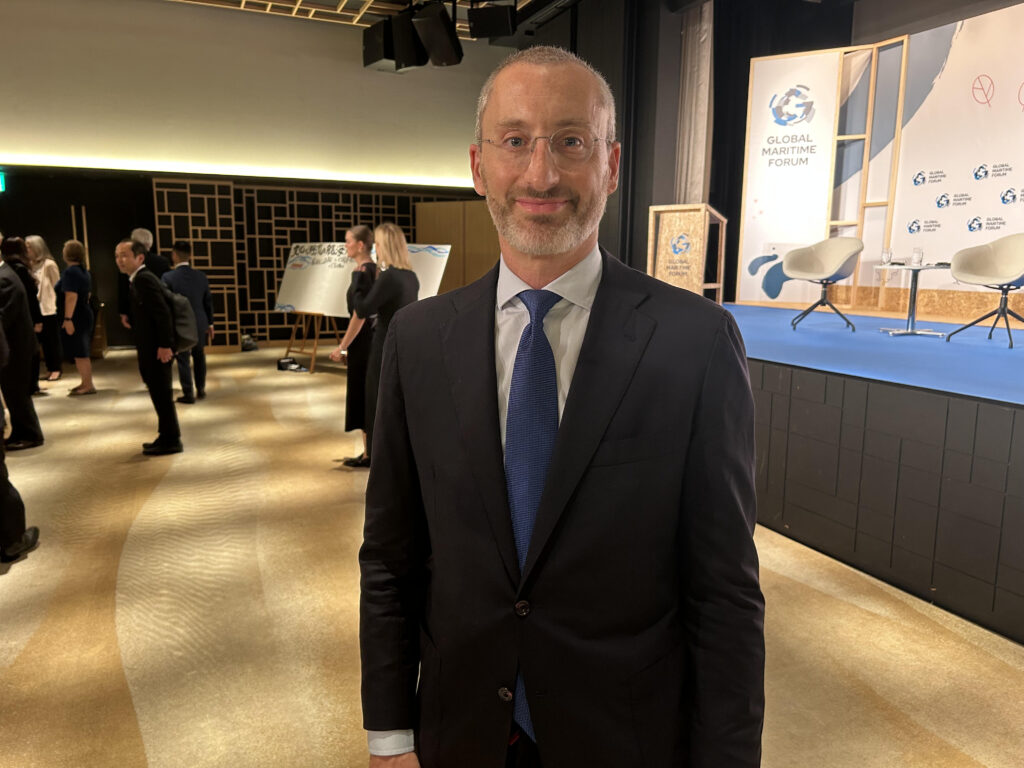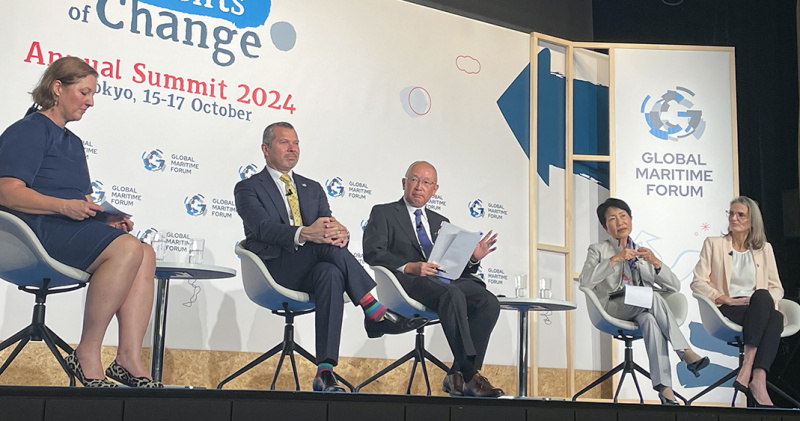The annual summit of the international non-profit organization Global Maritime Forum (GMF), which aims to advance global maritime trade, kicked off on the evening of October 15, 2024, at Happo-en in Minato City, Tokyo.
During the opening event, Arsenio Dominguez, Secretary-General of the International Maritime Organization (IMO), emphasized the importance of collaboration, stating, “Decarbonization in shipping will be achieved not only through the set of regulations scheduled for adoption next year but also through cross-sectoral exchanges and shared learning.”
President of Mitsui O.S.K. Lines (MOL), Takeshi Hashimoto remarked, “We are at a critical juncture, and a mere follower strategy will not suffice. We aim to play a leading role and make significant contributions in decarbonization.”
(Text by Hiro Yamamoto)
Photo courtesy=GMF,JMD
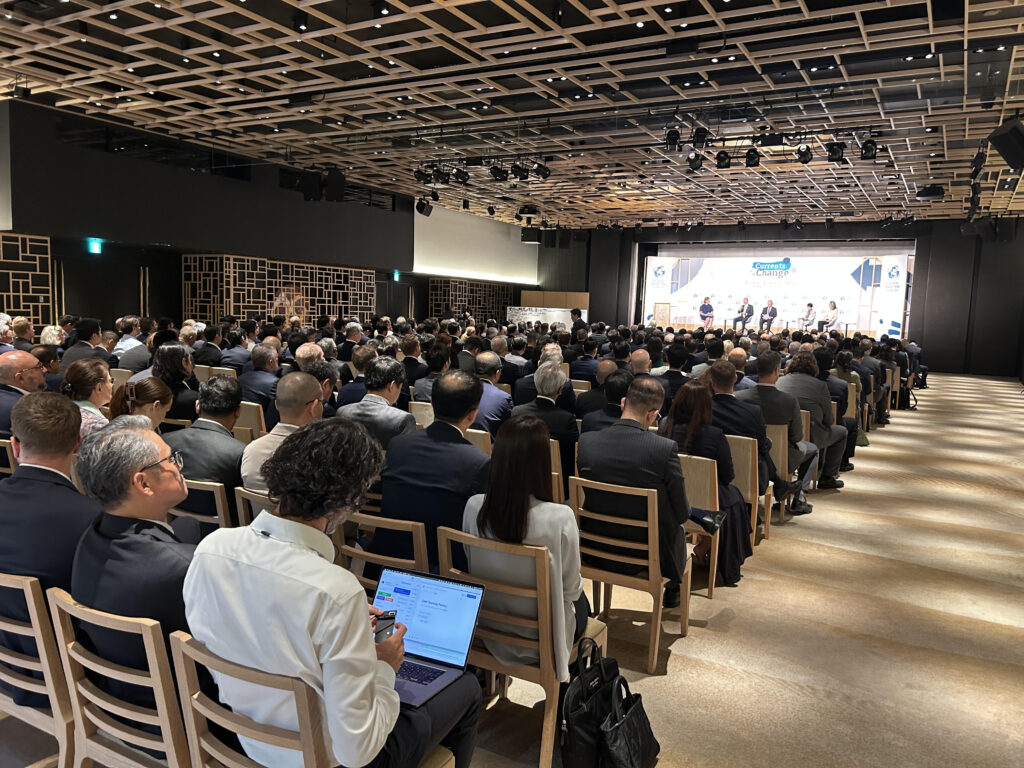
■Around 400 Participants Attend the Opening Ceremony of the GMF Tokyo Summit. Collaborative Initiatives like “Green Corridors” and “Poseidon Principles” Take Shape.
The opening ceremony of the Global Maritime Forum’s (GMF) annual summit, held for the first time in Japan, welcomed approximately 400 attendees. The summit has become a platform for fostering cooperation, leading to initiatives such as the development of “Green Corridors,” the “Poseidon Principles” for financial backing of maritime decarbonization, and the “Sea Cargo Charter,” which enables major charterers to measure and evaluate greenhouse gas (GHG) emissions from maritime transportation.
Takeshi Hashimoto, President of Mitsui O.S.K. Lines (MOL), joined the opening panel discussion alongside IMO Secretary-General Arsenio Dominguez, the Chief Commercial Operations Officer of Rio Tinto, a major Anglo-Australian resource company, and a special envoy from the University of Tokyo’s Global Commons initiative.
During the discussion, Hashimoto explained, “The reason MOL participates in initiatives like GMF and the First Movers Coalition is that we clearly recognize the urgent need for transformation within the maritime industry. It is essential to create momentum for change throughout the sector.”
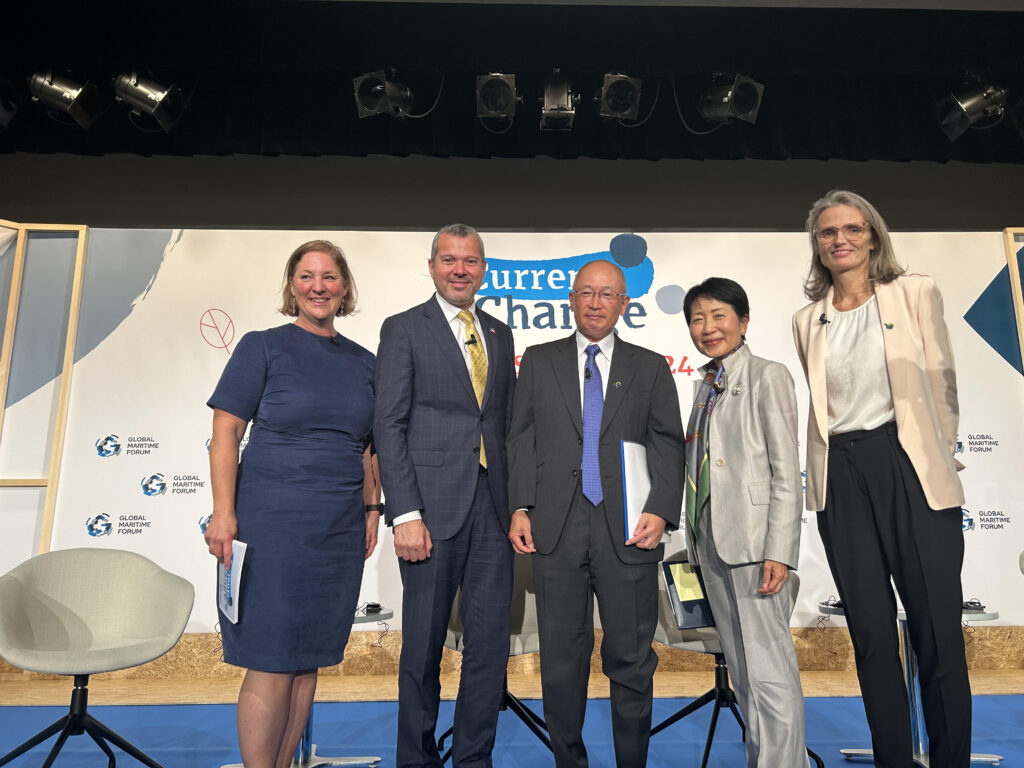
In the Q&A session, Hashimoto was asked when MOL plans to narrow down its choice of new fuels. He responded:
“MOL believes that, for the time being, we should explore multiple potential solutions, including ammonia, bioethanol, ethanol, and green ammonia. There are many differing opinions about each fuel, but the most critical factor is the availability of supply. Today, we are transitioning to LNG because its supply is reliable almost everywhere in the world. With existing energy storage infrastructure in place, we believe that maximizing energy efficiency can lead to a 20–25% reduction in emissions.”
He continued, “By 2030, we aim to collect data for building ammonia-fueled ships and other new fuel-powered vessels. We are also advancing the development of new technologies, such as battery-powered and hydrogen-powered ships. We have already constructed small hydrogen and battery vessels for operation in coastal waters around Japan. However, fuel availability remains a crucial consideration for us. This means we will likely need to use a variety of alternative energy sources over a long period—perhaps four or more, including nuclear energy and other options. This diverse energy portfolio will allow us to achieve net-zero emissions in the maritime industry.”
Hashimoto concluded, “In the next two to three years, we expect to have a clearer outlook. However, the most pressing issue is how to ensure a stable supply of these new energy sources.”
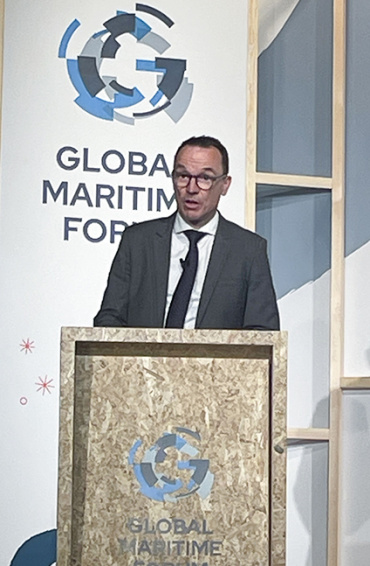
■IMO Secretary-General Dominguez: “We Are Ready for the Introduction of Nuclear Propulsion Systems.”
When asked whether the International Maritime Organization (IMO) is prepared for the introduction of nuclear propulsion systems, Secretary-General Arsenio Dominguez responded:
“The answer is yes. Nuclear propulsion has already been included in the Marine Environment Protection Committee’s process as one of the potential future propulsion options. Beyond safety considerations, there is much to be gained from nuclear energy. This relates to the types of energy that can be used onboard ships. We are not excluding any options.”
He elaborated, “I believe this might be the first time a fuel question has been directed at others, but my answer regarding nuclear energy remains the same. We consider ourselves technology-neutral. From the beginning, we recognized that the transition phase would provide some countries with opportunities to leverage renewable resources that are abundant within their borders. Additionally, scalability and the regulatory process should not hinder the exploration of these opportunities or limit technological development.
“Nuclear energy, therefore, is a very important topic under consideration. It is also being factored into life-cycle assessments for future analyses. We are excluding nothing and are always examining safety aspects within all regulatory processes,” Dominguez concluded.
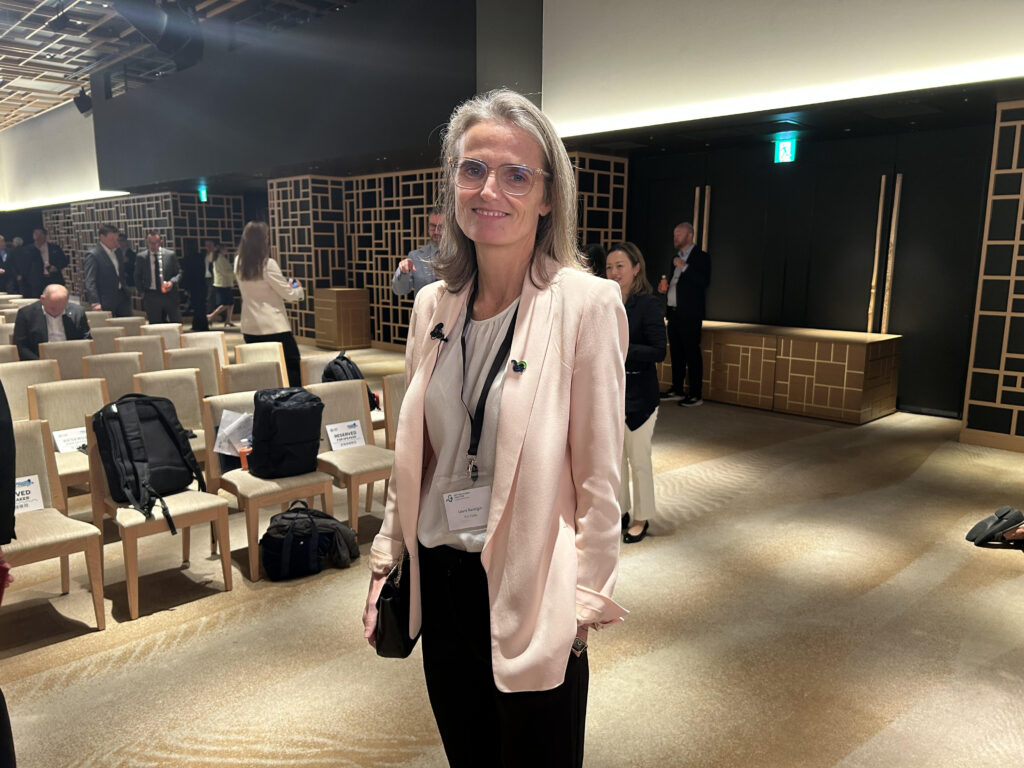
〆GMF(Global Maritime Forum)、東京サミット開幕。IMO事務局長(Secretary General)「産業横断の交流が鍵」。商船三井(MOL)・橋本(Hashimoto)社長「脱炭素リードし貢献」
世界の海上貿易の発展を目指す国際非営利団体「グローバル・マリタイム・フォーラム」(GMF、本部・デンマーク)の年次サミットが2024年10月15日夕、八芳園(HAPPO-EN、東京都港区)で開幕した。オープニングイベントに登壇した国際海事機関(IMO)のアルセニオ・ドミンゲス(Arsenio Dominguez)事務局長(Secretary General)は海運の脱炭素化について「来年に採択予定の一連の規制だけでなく、産業横断の交流と学びによって達成される」と連携の重要性を強調。商船三井(MOL)の橋本剛(Takeshi Hashimoto)社長は「足元はクリティカルな段階であり、単なるフォロワー戦略では不十分だ。脱炭素において卓越した役割を果たし貢献したい」と語った。
(Text by Hiro Yamamoto)
Photo courtesy=GMF
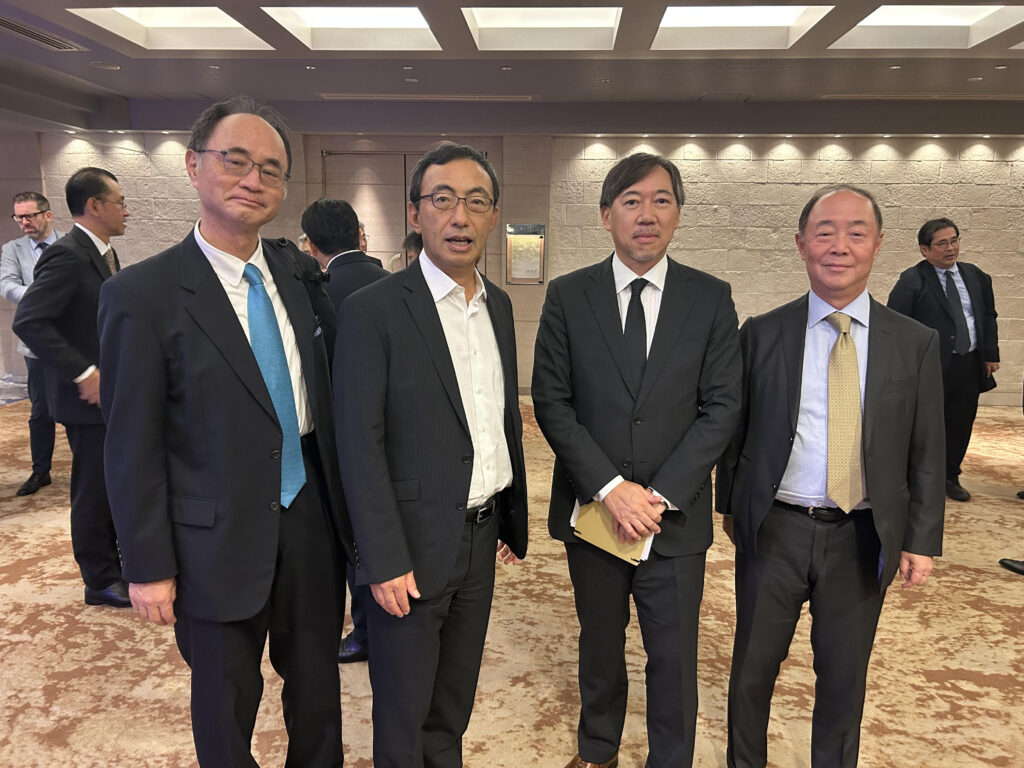
オープニングセレモニーには約400人が参加した。GMFの年次サミットが日本で開催されるのは初めて。GMFの年次サミットを契機に「グリーンコリドー」や、海運の脱炭素を金融から後押しする「ポセイドン原則」、大手用船者が海上輸送のGHG(温室効果ガス)を測定・評価する「シーカーゴチャーター」などの連携が生まれている。
商船三井の橋本社長はオープニングのパネルディスカッションにIMO事務総長、英豪資源大手リオティントのコマーシャルオペレーション責任者、東京大学グローバルコモンズ(Global Commons)担当総長特使らとともに登壇した。
橋本社長は「商船三井がGMFやファーストムーバーズ・コアリション(First Movers Coalition)などのイニシアチブに参加する理由は、海事産業の早急な変革の必要性を明確に認識しているからだ。業界に変革の機運を醸成していく必要がある」と訴えた。
質疑応答で橋本社長は、「商船三井はいつの時点で新燃料を絞り込むのか」と問われ次のように説明した。
「商船三井は当面、アンモニア、バイオメタノール、エタノール、グリーンアンモニアなど、多くの潜在的なソリューションを試してみるべきだと考えている。どの燃料についても賛否両論が非常に多いのだが、最も重要な要素は供給可能性だ。今日、私たちがLNGに移行しているのは、LNGの場合、ほぼ全世界で供給を心配する必要がないからである。現在、エネルギー貯蔵施設は利用できる状態になり。そのため、エネルギーの最大限の活用により、排出量を20~25%削減することができると考えている」
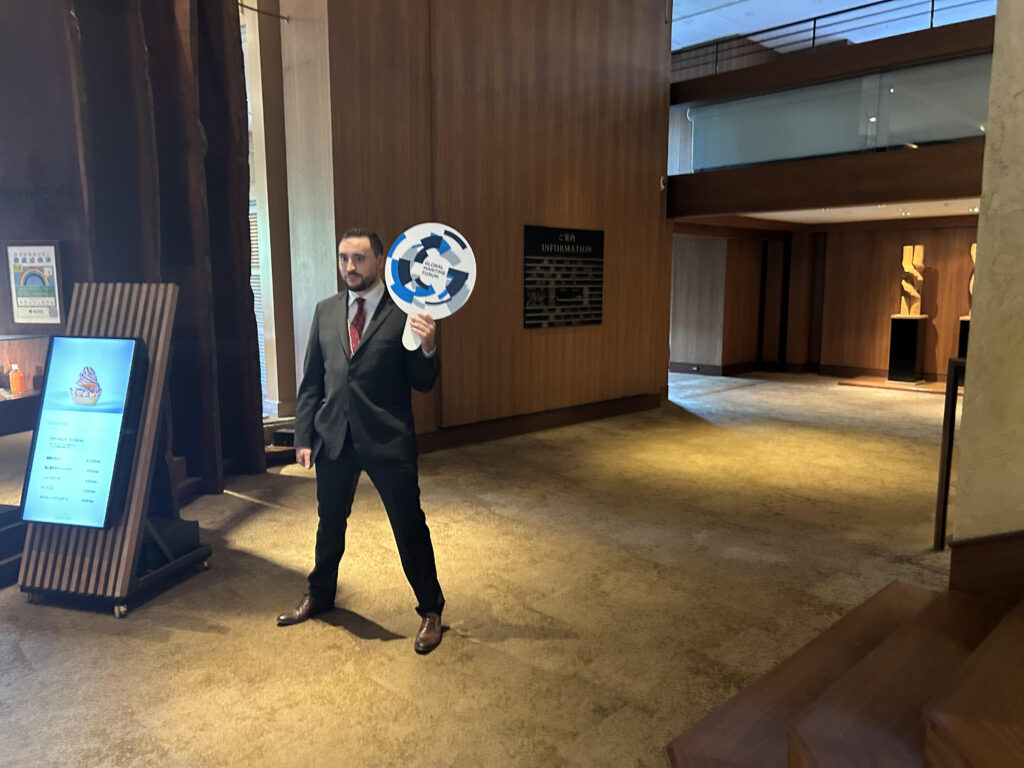
「2030年までに、私たちはいくつかのアンモニア燃料船やその他の新燃料船を建造するためのデータを収集し、他の新しい技術、例えば、バッテリー船、水素船の開発を進めている。実際、私たちはすでに日本の近海で非常に小さな水素船とバッテリー船を建造している。しかし、燃料の供給可能性は私たちにとって重要な要素であることに変わりはない。そう考えると、おそらく私たちは、非常に長い期間にわたってさまざまな代替エネルギーを使用する必要があるだろう。1つ、2つ、3つではなく、おそらく4つ、原子力やその他のエネルギーも含めて、私たちはそれらを使用する必要がある。そうすることで、私たちは海運業界のネットゼロを維持できる。これが今日出た答えです。2年-3年もすれば、より明確な見通しが立つだろう。しかし、私にとって最も重要なのは、供給側をどうするかということだ」
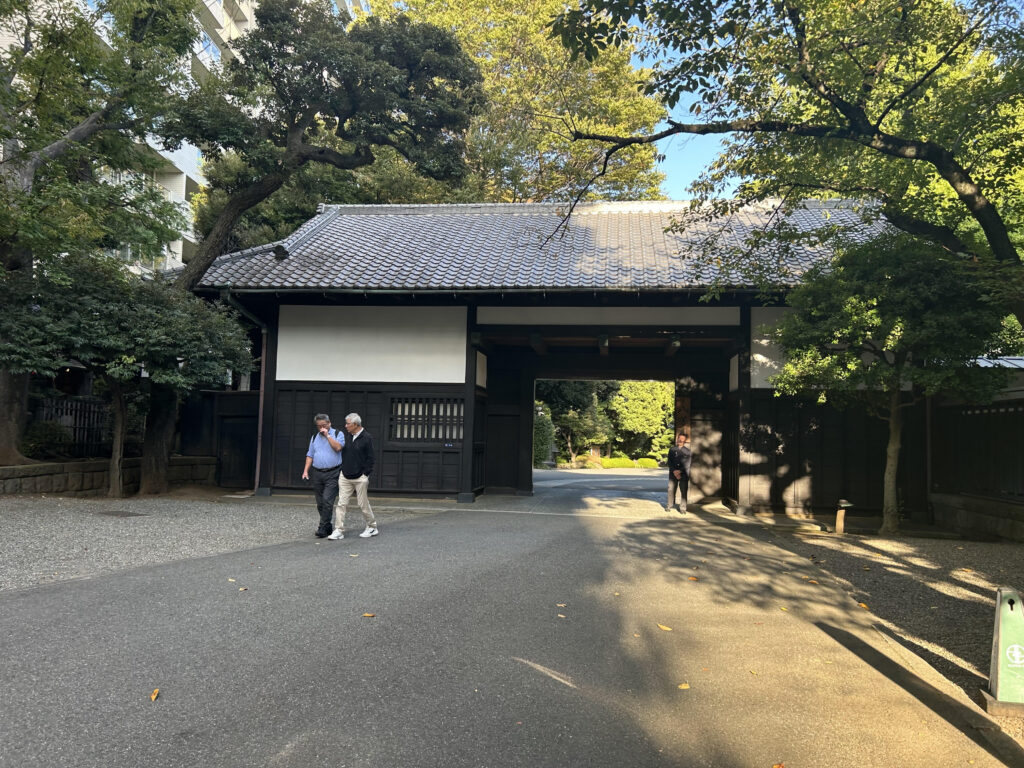
続けてIMOのアルセニオ・ドミンゲス(Arsenio Dominguez)事務局長(Secretary General)が「IMOは原子力推進機関の導入について準備が出来ているか」と問われ、次のように説明した。
「答えはイエスだ。すでに海洋環境保護委員会のプロセスに、将来の推進手段の可能性の一つとして含まれている。安全面以外にも、原子力から得られるものはたくさんある。船上で使用されるエネルギーの種類がそこにあるからだ。私たちはあらゆる選択肢を排除しているわけではない」
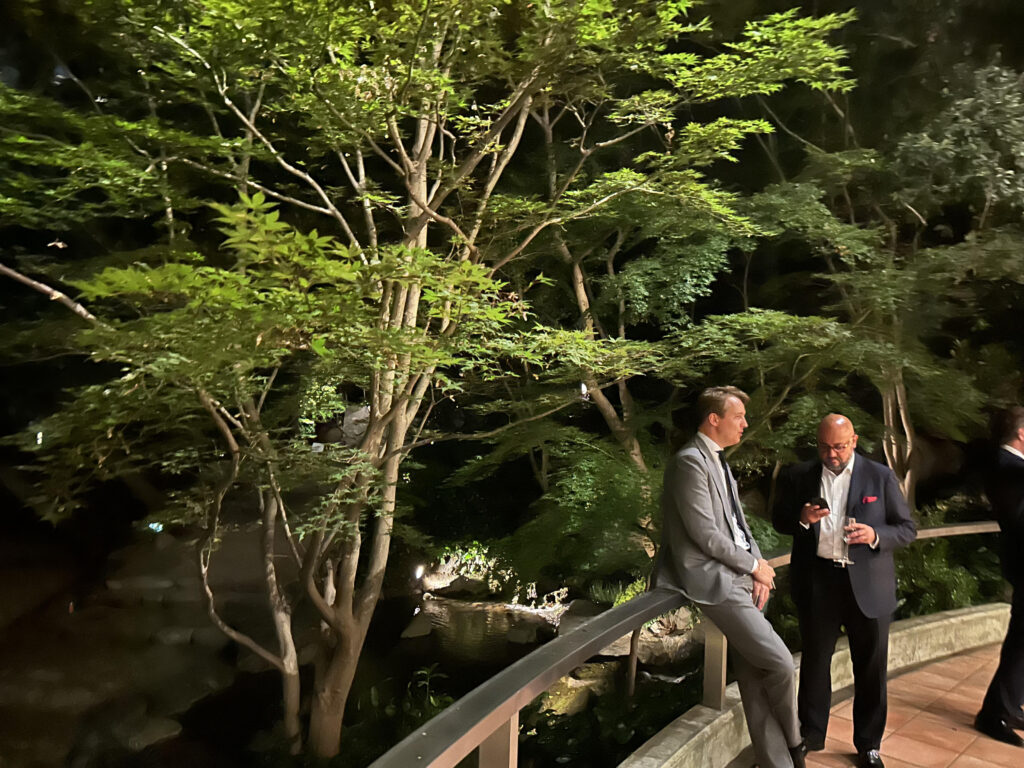
「実際、燃料が何であるかという質問が他者に向けられたのは初めてのことだと思うが、原子力に対する答えは同じです。私たちは、技術に関しては無神論者だと感じている。なぜなら、これは一部の国が機会を捉えて、自国内に大量に存在する再生可能資源に焦点を当てるという移行期になるだろうと、当初から認識しているからだ。また、拡張性や規制プロセスは、それらの機会を詳細に説明したり、技術開発を妨げたりするものでもない。ですから、原子力は非常に重要な検討課題となっているのだ。将来の分析のためのライフサイクル評価にも含まれている。ですから、私たちは何も排除せず、常にあらゆる規制プロセスの安全要素を調査している」
